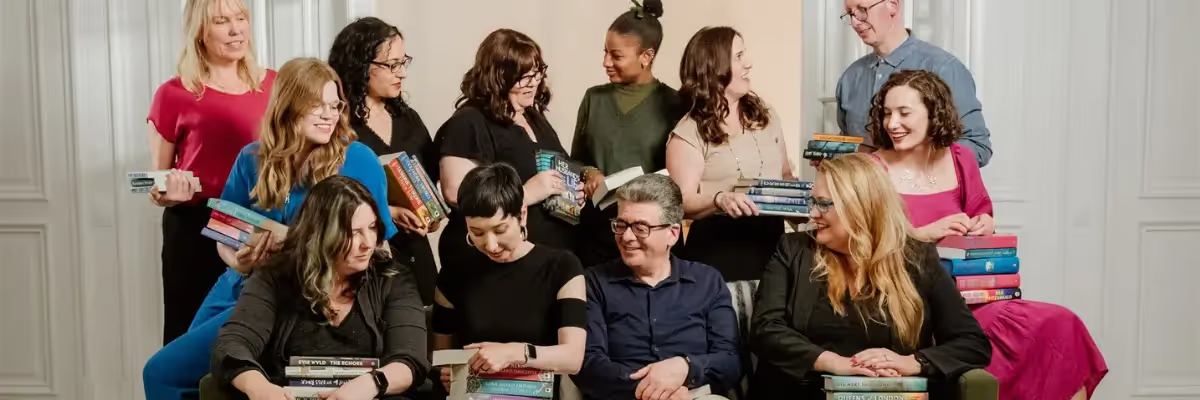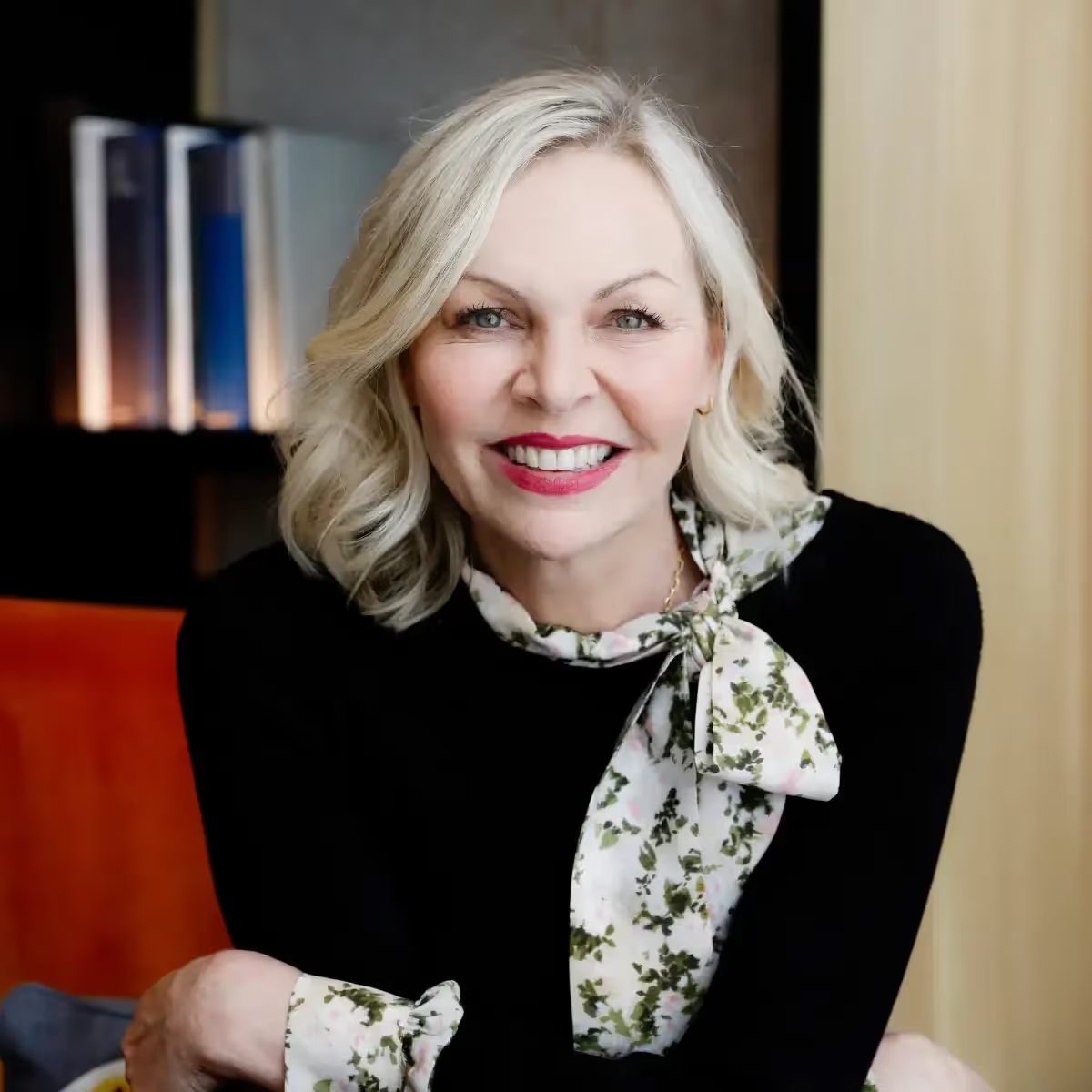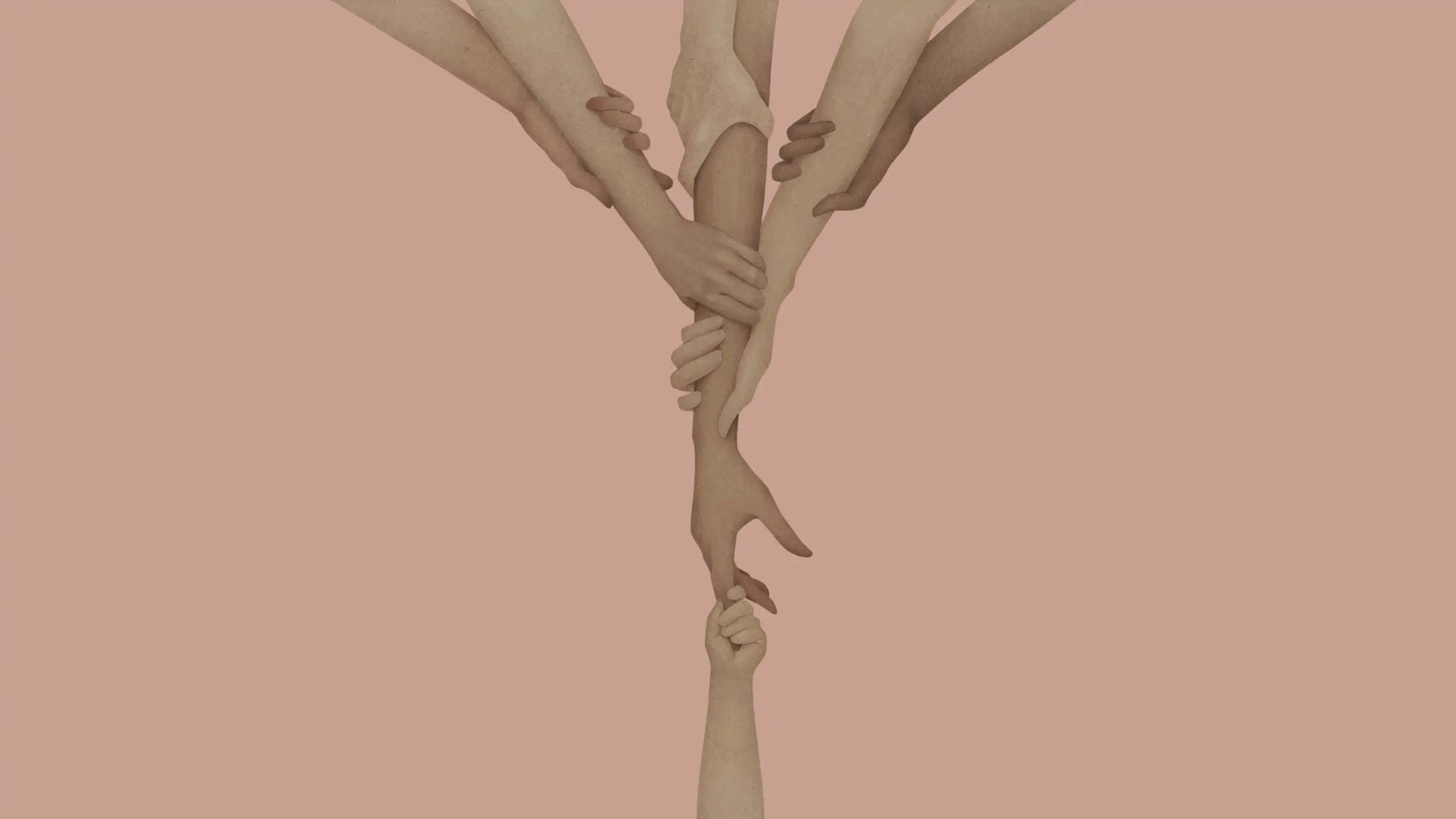Some authors lean heavily and shamelessly on a ‘Hero Book’ to tread in the literary footsteps of their favorite author, and so should you.
Borrowing the structure of a book you admire and walking in the footsteps of its chapters is no bad thing to steady the writing nerves, especially for beginning writers.
Barbara Kingsolver, winner of the Pulitzer Prize and the Women’s Prize for Fiction 2023, did just that when she used David Copperfield as her Hero Book for Demon Copperhead.
Here’s why and how, in this interview with the Guardian:
And so she found herself, late one November night, sitting alone in Dickens’s study, at the very desk on which he wrote David Copperfield (his favourite and most autobiographical novel), staring out at the ocean, just as he had done nearly 175 years ago. ‘I just felt the presence of his outrage.’ She’s not given to hearing voices, but she says: ‘I felt him saying, “What do you mean, nobody wants to hear this?” He said: “Let the child tell the story.” I thought, “Well, I will. Thank you, Mr Dickens. I will let your child tell the story.”’
And so she sat up the rest of the night making notes and downloaded David Copperfield to reread on the flight back. ‘It was a masterclass,’ she says. ‘Learning all the tricks that he used to get the gentle Victorians, who didn’t want to think about poverty and orphans, to look at those kids and wait for the next chapter.’
She finally had her way into writing about the ‘lost boys’ of Appalachia, where 40% of children are raised by someone else, either because their parents are dead, in prison or too incapacitated by addiction.
—The Guardian on Barbara Kingsolver
What is a Hero Book?
At The Novelry, we offer a selection of suggested Hero Books to our writers as part of our method. We choose them carefully, for these reasons:
- They make the journey plain and easy to follow; they’re not overly complex, intimidating or ornate. They do not have a strong voice that could press you into inauthentic mimicry.
- They are modern in tone and pace. It will be easier for you to emulate them.
- They are exemplars of the perfect novel story structure—and good writing (as you will discover in our courses).
- They are unarguably good books, acclaimed, awarded, and well-reviewed.
- They have been recommended by our team as Hero Books to produce great results in storyline and prose.

Hero books from different genres
Literary Fiction
Sally Rooney, Normal People
.avif)
Connell and Marianne grew up in the same small town in Ireland, but the similarities end there. At school, Connell is popular and well-liked, while Marianne is a loner. But when the two strike up a conversation—awkward but electrifying—something life-changing begins.
A year later, they’re both studying at Trinity College in Dublin. Marianne has found her feet in a new social world while Connell hangs at the sidelines, shy and uncertain. Throughout their years at university, Marianne and Connell circle one another, straying toward other people and possibilities but always magnetically, irresistibly drawn back together. As she veers into self-destruction and he begins to search for meaning elsewhere, each must confront how far they are willing to go to save the other.
For Normal People, Sally Rooney won the British Book Award, the Costa Book Award, the An Post Irish Novel of the Year, and the Sunday Times Young Writer of the Year Award. It is an exemplum of great writing.
For more on how Sally Rooney writes her award-winning novels, see The Novelry’s article on How to Write Like Sally Rooney.
Normal People is a Hero Book for writers working in the romance and literary fiction genres.
Science Fiction and Fantasy
Hannah Kaner, Godkiller
.avif)
Gods are forbidden in the kingdom of Middren. Formed by human desires and fed by their worship, there are countless gods in the world—but after a great war, the new king outlawed them and now pays ‘godkillers’ to destroy any who try to rise from the shadows.
As a child, Kissen saw her family murdered by a fire god. Now, she makes a living killing them and enjoys it. But all this changes when Kissen is tasked with helping a young noble girl with a god problem. The child’s soul is bonded to a tiny god of white lies, and Kissen can’t kill it without ending the girl’s life too.
Something is rotting at the heart of their world, and they are the only ones who can stop it.
An international and USA Today bestseller, Godkiller was shortlisted for Book of the Year at the British Book Awards. It is a Hero Book for writers in the science fiction and fantasy genres.
See Hannah Kaner’s blog on writing resilience at The Novelry’s creative writing blog.
Young Adult and Psychological Thriller
E. Lockhart, We Were Liars
.avif)
A beautiful and distinguished family. A private island. A brilliant, damaged girl; a passionate, political boy. A group of four friends—the Liars—whose friendship turns destructive. A revolution. An accident. A secret. Lies upon lies.
We Were Liars follows the wealthy Sinclair family, who spend every summer sitting gathered on their private island. However, not every summer is the same. When something happens to Cadence during the summer of her fifteenth year, the other three ‘Liars’ (Johnny, Mirren and Gat) re-emerge two years later to prompt Cadence to remember the incident. The truth is gradually unraveled, to morbid ends.
The novel won the Goodreads Choice Award for Best Young Adult Fiction. It is a Hero Book in the Young Adult and psychological thriller genres. The novel’s intricate plot and emotional depth have captivated readers, making it a standout in the YA genre.
Historical Fiction and Romance
Kazuo Ishiguro, The Remains of the Day

At the center of Kazuo Ishiguro’s The Remains of the Day is a butler named Stevens. Stevens, at the end of three decades of service at Darlington Hall, spending a day on a country drive, embarks as well on a journey through the past in an effort to reassure himself that he has served humanity by serving the ‘great gentleman,’ Lord Darlington. But lurking in his memory are doubts about the true nature of Lord Darlington’s ‘greatness,’ and much graver doubts about the nature of his own life.
Set in post-World War II England, this novel was awarded the Booker Prize and is a Hero Book for writers working in the historical and romance genres.
Thriller
Oyinkan Braithwaite, My Sister, the Serial Killer
.avif)
Korede’s sister Ayoola is many things: the favorite child, the beautiful one, possibly sociopathic. And now Ayoola’s third boyfriend in a row is dead, stabbed through the heart with Ayoola’s knife.
Korede has long been in love with a kind, handsome doctor at the hospital where she works. She dreams of the day when he will realize that she’s exactly what he needs. But when he asks Korede for Ayoola’s phone number, she must reckon with what her sister has become and how far she’s willing to go to protect her.
A Booker Prize nominee, My Sister, the Serial Killer was voted one of TIME magazine’s 100 Best Mystery and Thriller books of all time. It is a Hero Book for writers of thrillers and satire.
Psychological Suspense
Zoë Heller, What Was She Thinking?
.avif)
Schoolteacher Barbara Covett has led a solitary life until Sheba Hart, the new teacher at St. George’s, befriends her. But even as their relationship develops, so too does another: Sheba has begun an illicit affair with an underage male student. When the scandal turns into a media circus, Barbara decides to write an account in her friend’s defense—and ends up revealing not only Sheba’s secrets but her own.
Published in the U.K. as Notes on a Scandal, Zoë Heller’s What Was She Thinking? was shortlisted for the Booker Prize and was adapted into a film starring Judi Dench and Cate Blanchett. It is a Hero Book for anyone writing psychological suspense.
Romance
Emily Henry, Beach Read
.avif)
Augustus Everett is an acclaimed author of literary fiction. January Andrews writes bestselling romance. When she pens a happily-ever-after, he kills off his entire cast. They’re polar opposites.
In fact, the only thing they have in common is that for the next three months, they’re living in neighboring beach houses, broke and bogged down with writer’s block.
Until one hazy evening, one thing leads to another and they strike a deal designed to force them out of their creative ruts: Augustus will spend the summer writing something happy, and January will pen the next Great American Novel. She’ll take him on field trips worthy of any romcom montage, and he’ll take her to interview surviving members of a backwoods death cult (obviously).
Everyone will finish a book and no-one will fall in love. Really.
This New York Times bestseller is a Hero Book for anyone writing contemporary romance.
Children’s Fiction
Katherine Rundell, The Explorer
.avif)
Fred, Con, Lila and Max are on their way back to England from Manaus when the plane they’re on crashes and the pilot dies upon landing. For days they survive alone, until Fred finds a map that leads them to a ruined city, and to a secret.
This children’s book was awarded the Costa Children’s Book Award and is an excellent choice of Hero Book for writers in the middle-grade and children’s fiction genre.
Horror
Silvia Moreno-Garcia, Mexican Gothic
.avif)
After receiving a frantic letter from her newlywed cousin begging for someone to save her from a mysterious doom, Noemí Taboada heads to High Place, a distant house in the Mexican countryside. She’s not sure what she will find—her cousin’s husband, a handsome Englishman, is a stranger, and Noemí knows little about the region. For there are many secrets behind the walls of High Place. The family’s once-colossal wealth and faded mining empire kept them from prying eyes, but as Noemí digs deeper, she unearths stories of violence and madness.
Winner of the Locus Award, nominated for the Bram Stoker Award, and a New York Times bestseller, this novel is a Hero Book for writers in the horror and magical realism genre.
Autofiction/Memoir
Nora Ephron, Heartburn

Seven months into her pregnancy, Rachel discovers that her husband, Mark, is in love with another woman. The fact that this woman has a ‘neck as long as an arm and a nose as long as a thumb’ is no consolation. Food sometimes is, though, since Rachel is a cookery writer, and between trying to win Mark back and wishing him dead, she offers us some of her favorite recipes. Heartburn is a rollercoaster of love, betrayal, loss and—most satisfyingly—revenge.
For a stunning example of autofiction and memoir, writers can choose Heartburn as their Hero Book.
{{blog-banner-5="/blog-banners"}}
How to improve your writing skills
- At the core of every good concept is a paradox. (Find it, and you’ve got a story.)
- Don’t write for money. Don’t write for free. In other words, don’t write to make sure you can eat, but don’t spill your words without getting paid for them. Making it your living is the best way to keep your standards high. Besides, no-one wants anything that’s free.
- A novel is best with one timeline for the main story, written in the present tense, narrated in the third person. Now we have that sorted, let’s move on.
- The voice is yours. Fix your mind on someone you care about and feel relaxed enough to be yourself around, probably someone who is dead, and talk to them. Sing your heart.
- In the first chapter everything changes. It’s all messed up right now! But remember, you and me both know it’s going to get a whole lot worse for Mrs. Wright or Mr. Wrong.
- Stop making excuses for not writing, like plotting or research. Do research late into the writing.
- The plot happens after the first draft is done and dusted, when the story has worked you out.
- Your main character is the part of you that you’ve been trying to hide your whole lifetime, but he or she looks like someone you were fond of in childhood and has one or two good points and bad habits robbed from people you work with.
- Every novel is a tragedy, even when it’s comedy.
- You’ll never write better books if you don’t read better books. Start reading them. Hundreds and hundreds of them. And get yourself a professional juicer like The Novelry. We’ll show you these three noble truths:
Your story (courtesy of Tolstoy)
All great literature is one of two stories; a man goes on a journey or a stranger comes to town.
—Leo Tolstoy
Your plot (thanks to Epictetus)
Difficulties are things that show a person what they are.
—Epictetus
Your material (thanks to Miranda July!)
There’s no law against asking strangers about their lives and feelings, although sometimes it really feels like there is.
—Miranda July
Tips for writing better books from Booker Prize-listed author Louise Dean

When I was living in New York in the late 1990s, in my early twenties, I wanted to be a writer.
I was writing short stories and poems and thinking about writing a novel. I decided to learn as much as I could about the craft from writers themselves, so when a great writer was in town, I was there. In those days everything was possible. I used to sit on the sidewalk downtown with my notebook and sketch in words what I saw passing me by, which in New York was varied and bizarre enough to fill notebooks. A man riding a bike with an elephant trunk strapped to his face. A large Black woman who has roughly whitewashed her body. These things moved me.
Seamus Heaney came to read from his work and after the talk he gave I jogged up to him and asked him in my naive way—I was 25 then—what was it all about, writing?
He had kind eyes and a wry, bemused, avuncular manner, and he said to me: ‘It's all about starting and stopping and starting again.’ I went to hear Annie Proulx read and was breathless in the audience as she read from The Shipping News.
Having moved to Park Slope in Brooklyn, a mother by then, in my late twenties, Ian McEwan came to speak at the large church there. The Pastor was Wilbur Washington, who had been a figure in the civil rights movement, and his services were so brimful of humanity, wit and humor that he made a temporary Christian of me. So, naturally, when the big writer was in town, I was there in the pews. The church was filled. Casually, in a crumpled linen jacket, Ian McEwan talked about writing and I sat in awe. When the session was opened up to the audience for questions, I put my hand in the air.
‘Mr. McEwan, where do you get your ideas from?’

He smiled on one side of his face. ‘I asked my friend Steve Martin what he says when people ask him this question, as people always do, and he said to me, “I say to them, ‘Where do you get your ideas from?’”’
The audience laughed and a few people turned to look at me for my reaction. I reddened.
I was crushed. I went home to my baby son, and as I walked home I felt at first foolish, and by the time I got to my door, angry, and I had an idea there and then at the door. I thought—one day I will be on the Booker list with you, Mr. McEwan. Well, I was on it just three or four years later, though he was not on it that year but I still recall that dreary sense of exclusion—that writers were not people like me, they were people like him in crumpled linen jackets with important celebrity connections.
So, here’s how to come up with an idea for your novel:
- You must always have with you a way of taking notes, whether it is a notebook or your notes app on your phone.
- Emotion. You will find yourself in any day at some point in a heightened state of emotion, probably several times. These are your idea-picking moments. Emotions like sorrow and regret and nostalgia or embarrassment—in other words, the emotions we tend to consider negative (wrongly)—are ripest, since they are a faster route to truth. Stay in that state longer than comfortable and explore it ruefully then ruthlessly.
- Music. Turn on a song of meaning which hurts you or has a lyric you find breathtaking. Or turn to a book of poetry whose purpose is plainly revelatory, such as Larkin’s. If you’re stuck, put on Moby’s In This World. That stings. Or Dead Can Dance’s American Dreaming. Or When I’m Thinking About You by The Sundays.
- Think what if... And allow that thought to develop the way we used to watch Polaroids develop. Think what if I... consider some aspect of yourself you don’t like, ascribe it to someone not like you at all, and see them in your mind’s eye. Maybe look at someone opposite you on the train or wherever you are and think ‘what if they felt this’ because they knew that or had done that. Find your secret, then give it to someone else to sort out.
- Now, take that thought and turn it round to find its moral polar opposite. So, with many novels we find a rich man is poor, a dying man finds life, the blind see more clearly, a pretty girl feels ugly, success is failure or the reverse and so on. In the expanse of space from one pole to the other lies the moral dimension, or the journey of your novel.
- One sentence at a time. Write just one sentence that puts this problem as a paradox quite succinctly. With my first novel the idea was that a dying man found life, and my first sentence was ‘Before he’d had cancer, he’d been bored with life.’ Thus I nailed my colors to the mast. A novel begins sometimes with someone’s favorite delusion too, thus in J.M. Coetzee’s Disgrace, the novel begins with the protagonist considering that he has, to his mind, ‘solved the problem of sex rather well.’ (The paradox is that it is sex that almost destroys that which he holds dear, not once but twice, and with increasing violence.) This first sentence will compromise you, possibly, and you will ascribe your secret, your failing, your flaw or worry to another person in another time and place and have them deal with it. (Graham Greene described the purpose of fiction as finding ‘ways of hiding.’) At the beginning of the novel you equivocate because you don’t have the answer. The novel solves it.
- Willpower. Just as the moment of conception is not in itself a human life, so your conception will take bodily shape thanks to the many decisions you make which add flesh to it and the care and time and love you give it. Your idea will happen because you have the will to make it happen. You will need a love of the craft and a willingness to study it closely. The novel idea will have a burning emotional meaning to you which will keep you working at it (it is the hidden story of your life and your existence demands it be resolved in your lifetime), and to maintain the will to write it you might dedicate it, again in secret, to someone you love.
Welcome home, writers. Join us on the world’s best creative writing courses to create, write and complete your book. Sign up and start today.
.avif)

.avif)
.avif)


.avif)


